“Everything people know about Crimea comes from Russia and most of it is a lie”: An interview with Lia Motrechko
Lia Motrechko is a young activist for the rights of the Crimean Tatars. The daughter of a Ukrainian father and a Tatar mother, she lives in Spain where she studies history.
You and your family left Crimea after the Russian occupation in 2014. What were the first moments of the occupation like?
Nobody thought that Russia would invade Crimea, but it happened and we saw more and more soldiers and tanks arriving. The appearance of the streets changed and became full of Russian flags, even in my school, I was 12 years old, we started getting propaganda lessons: Russia is here to defend you! The United States and the European Union want to invade Crimea because it is a beautiful place! We were also told that the Ukrainian government does not allow people to speak Russian, when in fact everyone speaks Russian and most schools teach in Russian. After a month my parents saw that the situation was not changing and that the Russians were forcing their passports on the Crimeans. For them, this was a betrayal of Ukraine, and my father also told us that he did not want his children to live under the Russian system, because it was an inhuman system with no opportunities, like what he had experienced in the Soviet Union.
I imagine you have heard many times in Spain that Crimea is undoubtedly Russian.
Yes, and that is because everything people know about Crimea, like what is known about Ukraine or other peoples subjugated by the Russians, comes from Russia and most of it is a lie. Unfortunately, we Crimean Tatars had no voice until very recently, so we have a lot of work to do.
Russian policy has left a mark that lasts until today, starting with the first Russian occupation in 1873. At that time, Crimean Tatars made up 90% of the population. However, Russia’s policy of land confiscation and discrimination caused many Crimean Tatars to leave Crimea, mainly for religious and cultural reasons, for the Ottoman Empire, where the largest Crimean Tatar diaspora can be found today.
Do you think this diaspora is one of the reasons why Turkish President Tayip Erdogan has spoken out in favour of Crimea remaining part of Ukraine?
Yes, the Turks have always been more sympathetic to the Tatars than to the Russians, and many Turks treat the Tatars as ‘Crimean Turks’, i.e. as a brotherly people. But Tatars have also settled in other countries, such as Romania or Bulgaria, because they could not live in Crimea due to the conditions imposed by the Tsarist authorities, who wanted to ‘Russify’ the territory. From the beginning of the Russian occupation until the beginning of the 20th century, 800,000 Tatars left Crimea.
Another terrible date for the Crimean Tatars was 18 May 1944, when Stalin ordered their deportation to Central Asia, accusing them of collaborating with the Germans.
Yes, the Soviet regime also oppressed the Crimean Tatars, who suffered starvation and persecution, and at the time of the 1944 deportation, the Crimean Tatars made up only 30% of the Crimean population. The deportation was carried out in terrible conditions in just 10 days, and while the men fought in the Red Army against the Germans, 240,000 women, children and old people were deported to the Urals, Kazakhstan and Uzbekistan. The excuse was collaborationism, but this is another Russian lie, because the vast majority of Tatars fought in the Red Army or as partisans against the Germans. These soldiers were deported from the front at the end of the war, in many cases to places other than where their relatives were. For example, part of my family was deported to Ivanovo Oblast and another part to Uzbekistan.
The Tatars were kept in special camps for twelve years, and at least half of the deportees died of hunger or disease during the journey or later in the camps. The houses of the deportees were given to Russian families, and the authorities erased all traces of Crimean Tatar culture: they burned libraries, destroyed cemeteries, changed place names to Russian names, and so on. What happened to the Crimean Tatars was genocide.
There is a 2013 Ukrainian film about the deportation of Crimean Tatars that has caused a lot of controversy.
Yes, ‘Haytarma’ (Return), a film directed by and starring a Crimean Tatar, Akhtem Seitablaiev. The film recounts the horrors of deportation and is based on the life of the famous Tatar-born pilot Amet-Khan Sultan, who was twice named a ‘Hero of the Soviet Union’. The Soviets did not mind deporting the Tatar Communists either, and many of them could not believe that Comrade Stalin would do this to them and looked for other culprits, mentally they were still slaves of the USSR. Back to the film, when it was about to be released in Crimea, the Russian Consul General, Vladimir Andreev, tried to sabotage the release, claiming that the film ‘distorted the history of the Soviet Union’, as a film about the Crimean Tatars should be about their ‘betrayal’. The scandal forced Andreyev to resign, but a year later Russia occupied Crimea.
Haytarma is also the name of our national dance, which is full of symbolism.
The deportation ended with Stalin’s death, can the Tatars return to Crimea?
No, many stayed in Uzbekistan and elsewhere because Tatars were not allowed to buy property, work or study in Crimea. My family, for example, was not allowed to return to Crimea until 1989. Tatars were not allowed to return to their homeland until the Soviet Union collapsed.
When the Crimean Tatars return to their homeland, what percentage of the population do they represent?
About 150,000, 10-15% of the population. The return was complicated and there were a lot of problems because many Russians said we were going to take their homes, but finally the Tatars returned to Crimea 45 years later. The following years were difficult for the Crimean Tatars as well as for the Ukrainians, but the 1996 Ukrainian constitution recognised the Tatars as the indigenous people of Crimea. With the occupation everything got worse again, for example at school I had lessons in Ukrainian, Russian and Tatar. Now there are only Russian classes.
On the occasion of the recognition of the Crimean Tatars in Ukraine, Zelenski inaugurated a monument dedicated to the victims of the genocide on 14 September.
Yes, there are three dates on the monument marking the suffering of the Tatars: 1783, the annexation of Crimea by the Russian Empire; 1944, the deportation; and 2014, the occupation. At the time of the annexation, Tatars were the majority of those demonstrating against the occupation in Crimea. Today, Tatars and Ukrainians are very close. Tatars are represented in the Rada (Ukrainian parliament) and have their own parliament, the Kurultai, as a representative body. The most prominent figure, who is also a deputy in the Rada, is Mustafa Dzhemilev, a dissident who was persecuted and imprisoned by the Soviet Union and which Russia has banned from entering Crimea forever. In addition, Rustem Umerov, a Crimean Tatar, was appointed Ukraine’s defence minister in September last year.
Russia has detained many Tatars on charges of being members of jihadist organisations.
Yes, that has been the excuse used this time to persecute Crimean Tatars. After the annexation, there were many arrests and repression, but the situation has worsened since the beginning of the war in 2022. There is a Telegram channel, Crimea SMERSH [SMERSH is an abbreviation of the Stalin-era Russian expression ‘Death to Spies’], which posts daily arrests of Tatars and Ukrainians for things like posting ‘unpatriotic’ messages on social media. The Russians don’t want us there and I wouldn’t be surprised if they carry out a new deportation.
Read also
The Banned Writers of the Slovo House
The Holodomor is a genocide that has become better known as a result of the Russian invasion of Ukraine, but when the crime was committed almost a century ago, the world did not know or did not want to know, and only a few voices, such as the journalist Gareth Jones or the Austrian engineer Alexander Wienerberger, dared to denounce the barbarity committed by Stalin.
Álvaro Peñas
Romania: George Simion one step away from the presidential election
The eyes of the whole of Europe are on Romania and it seems highly unlikely that the candidacy of George Simion, who represents the country’s second largest political force, will be challenged.
Álvaro Peñas
The Battle for History
Despite the European Parliament’s condemnation of communist totalitarianism, “progressive” governments try to erase the memory of its victims.
Álvaro Peñas
Make Europe Great Again. The international conservative conference in Romania and the return to normality
The last weekend of April we were in Bucharest to attend the MEGA - Make Europe Great Again event held in the Romanian parliament.



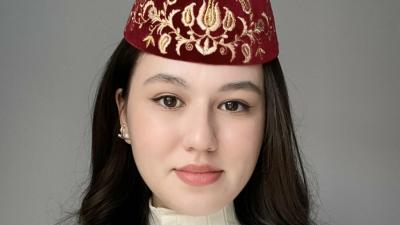


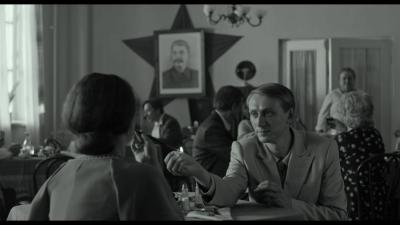

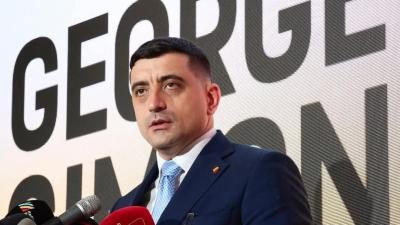

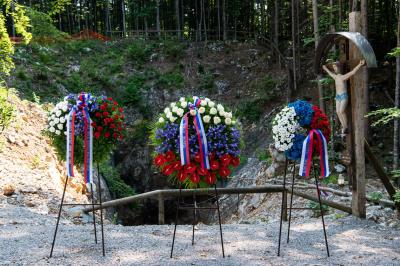

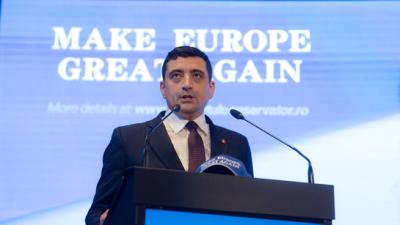

Comments (0)